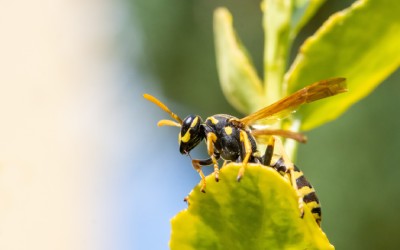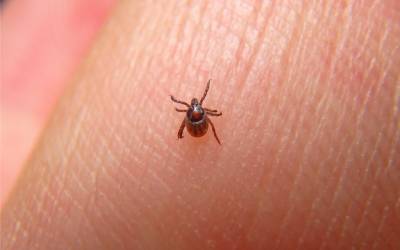You might think that you’re in the clear for pest problems when the summer heat starts to ease in North Carolina, but certain types of pests actually thrive around this time. With an ample amount of warmth and plenty of people participating in outdoor activities to savor the last of the summer, these pests have an easy time finding what they need, whether it be a blood meal, a food supply, or a place to build their nest. In order to ensure that pests don’t ruin the last part of your summer, you have to take preventative measures. Keep reading to learn what pests to watch out for and what you can do to prevent them, from the experts at McNeely Pest Control.
Common Late Summer Pests
Every season has its own characteristic pest problems in North Carolina and late summer is no exception. The pests that are the biggest nuisance in late summer are typically the ones that have the most to gain from warm conditions. Here are some pests that are especially active in late summer:
Bees and wasps: Stinging insects stay active into the late summer, pollinating plants in your garden and taking advantage of the warm weather. Wasps become both more numerous and more aggressive as the population of the colony peaks and natural food sources start to decline. Be wary of wasps and their nests at this time of year and definitely don’t try to remove a wasp nest yourself.
Ticks: They breed during the early summer, producing a yield of offspring that will climb to the tops of tall grass in search of hosts including you and your pets. They thrive in warm weather so your chance of running into them is increased even during the late summer months. Take precautions when hiking through tall grass and check yourself for ticks after you’re done.
Wildlife: Wild animals like raccoons, possums, and squirrels that wander into your yard could tear through your trash or garden and cause serious property damage. As the summer gets later, these animals like to stash food for the colder months and can end up living in your attic.
Mosquitoes: If mosquitoes establish a viable breeding population, their numbers will be so high by the late summer that they will be very hard to ignore. Mosquitos remain active as long as temperatures don’t drop below 50°F consistently, so be vigilant and try not to go out at dawn and dusk when they most like to feed.
Pest-proof Your Property for Late Summer
Major infestations of any of these late summer pests call for the intervention of a professional exterminator, but there are some general housekeeping strategies you can try to prevent pest problems on your property before they start. We recommend the following:
- Keep your yard tidy: Make sure that all of your trees and shrubs are trimmed back, promptly dispose of piles of grass clippings or other vegetation, and make sure you aren’t leaving out any items that could become shelter or habitat for pests.
- Seal your home: Regularly monitor the outside of your property to make sure that your home doesn’t have any cracks or gaps in roofing, foundation, or siding allowing pests access to your home. Unsealed attic vents are a particularly common pest entry point.
- Be careful with trash: Using bins that seal and not leaving trash outside the bins will help you avoid attracting hungry wildlife.
- Get rid of standing water: Mosquitoes breed in pools of standing water, no matter how small. Covering up pools, spas, and birdbaths and regularly checking for rainwater pools will help keep mosquitoes from breeding on your property.
Help with Pests in Late Summer
If you’ve tried everything you can to prevent pest infestations to no avail, it’s time to contact a local pest control company. The team at Mcneely Pest Control are licensed and trained to take on all of the types of pests we regularly see here in North Carolina. We can determine the cause of your infestation, put it to a stop, and teach you how to identify and to make your property less appealing and accessible to pests going forward. Contact us for a free quote!



